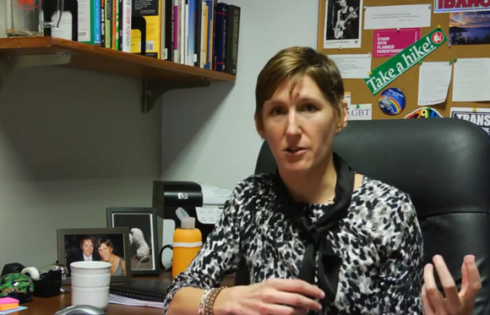Why would anyone use a check-cashing store instead of a bank? Aren’t the fees ridiculously high and punitive against the most vulnerable people, economically speaking, as liberal politicians and media like to tell us?
A University of Pennsylvania professor wanted to fight out, so she worked in one – and learned our conventional wisdom is bunk.
Business Insider interviewed Lisa Servon about her new book based on her experiences working in check-cashing and payday lending stores, and why people are fleeing the “broken banking system”:
Servon was surprised by what people told her. Over and over, Servon heard and observed that check cashers often met customers’ needs better than banks did. …
The RiteCheck she worked at charged $1.50 to pay a bill, $0.89 to buy a money order, and roughly 1.95% — as regulated by state law — of the face value of a check to cash it. These small fees add up, but they often paled in comparison to the unexpected charges, maintenance fees, and overdraft fees customers had experienced at banks.
She tells the story of one contractor who paid $97.50 to cash a $5,000 check (and gave her a $10 tip):
If Carlos is like many small contractors operating in New York City, he relies at least in part on undocumented workers, who are unlikely to have bank accounts. If Carlos deposited his check in a bank, it would take a few days to clear — too late to deliver cash on payday. Or maybe the check was a deposit for a job he had just been contracted to do, and he needed supplies to get started. If he couldn’t start right away, he risked losing the job to another contractor.
Banks are also horribly opaque with fees and conditions compared to check-cashing stores, where fees for each service are clearly listed and customers get their money right away, Servon says.
Perhaps most surprisingly, check-cashing tellers tend to be more friendly and helpful than the typical bank’s:
She said the dynamic resembled the banking she grew up with in the late 1960s and early ’70s that was based on relationships and that has largely faded from traditional banking.
Check-cashing companies charge small fees and thus rely on a high volume of business to turn a profit. That means inspiring loyalty is crucial to the business model …
“Banks want one customer with a million dollars. Check cashers like us want a million customers with one dollar,” [Joe] Coleman, the RiteCheck president, said in Servon’s book. [Disclosure: He had been a guest lecturer in her class and got her the job.]
In practice, this means providing customers with payment plans when times get tight or helping non-native speakers read letters they’ve received in the mail and providing advice …
Like The College Fix on Facebook / Follow us on Twitter
Like The College Fix on Facebook / Follow us on Twitter




Add to the Discussion